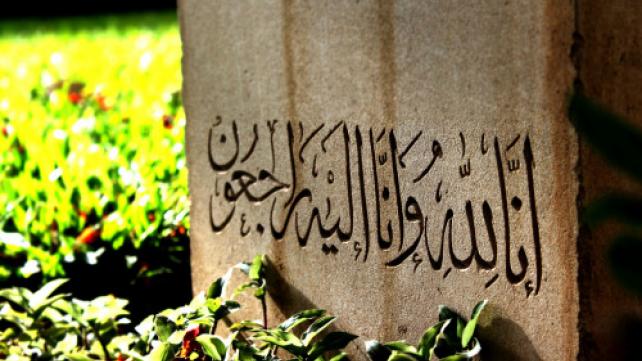
This is about an amazing Muslim woman I hardly knew.
She was born 63 years ago in Pakistan in the same neighborhood where Malala Yusufzai was born. Today, hundreds of people showed up for her funeral prayers on less than a day’s notice.
Dr. Zeenat Mahal Nawab was a physician who saved lives in the Chicago area for 34 years, as several thousand other Muslims do without ever getting noticed.
These hundreds of people who flocked to her funeral probably never heard of her 28-plus scientific papers, her academic background, her fellowships and her professional memberships. But what they all knew was her humanity.
I had met her just a few times. Unlike many physicians, I found her very humble, simply dressed in her Hijab and modest clothes. Her heart was full of love for the Ummah. That is how I first met her at her home. She liked what she heard in an interview I gave to NPR and wanted to discuss it.
I knew more about her husband, Gul Nawab. I shared his love for gardening. When Malala Yusufzai was attacked in the fall of 2012, he called me, requesting that Chicago Masjids pray for her health. As a person who gave sermons criticizing the Taliban, I was more than happy to oblige. He also connected me with Malala’s father in the U.K. They are from the same neighborhood in beautiful Swat valley of Pakistan.
I rarely take a day off from work. This day, I canceled all of my appointments and went for the funeral prayers and the burial.
But what inspired me to write about Dr. Zeenat Nawab were the comments Shaikh Jamal Said made about her before leading the funeral prayers, and her husband's words after the burial.
There were tears in my eyes as Shaikh Jamal Said started praising her character and her qualities. I have attended several funerals at the Mosque Foundation over the last three decades, but I have never heard him taking so much time before a funeral prayer to speak about a deceased person. His praise was delivered with a heavy heart and a somber voice. He appreciated her love of God and His book. He mentioned her love of the Prophet, Sallalahu Alaihe wa sallam. He mentioned her love of the Masjid. He told us about her generosity. We learned that she was not only a regular person at prayers but also a regular at Tahajjud, an optional very early morning prayer.
I wish I had written down the extraordinary words he used in her praise.
I did not know of Dr. Zeenat Nawab's towering spiritual stature. But then, women in general don’t get much appreciation. A Gallup report based on 500 nightly surveys in America found that Muslim women in America have a greater level of economic gender parity with men. That's more than any other religious group studied by Gallup. However, Muslim women feel the least respected in America.
Muslim women in the U.S. “are equal to Muslim men in the lower income bracket and five percent behind Muslim men in the higher income bracket as compared to Jewish women who are 38% behind Jewish men. As a general trend among all religious groups women have lower incomes: 'Protestants and Catholics have the largest gender differences in the lower-income bracket, and Protestants and Jews have the largest difference between men and women in the higher-income bracket.”
But Muslim women soldier on, remembering the words of Allah, the Most Just, that, "Never will I allow to be lost the good deeds of any among you, whether male or female [...]: (Quran 3:195).
While leaving the Masjid for the graveyard, I was full of emotion. I was thinking about how great this woman was. I was also struck by the fact that Shaikh Jamal Said was connected to his female congregants in a way that he could offer such sincere praise while many Masjids in Chicago do not even have a space for women to pray, in direct violation of the Prophet’s orders.
Then her husband spoke. Parting from the Muslim tradition in which people are mostly silent around the gravesite, Gul Nawab started reading a note he wrote about his wife. I was struck by the public expression of love by a Pathan about his Pathan wife. This was a huge departure, culturally speaking. Muslims specially Pathans keep their romantic feelings firmly to themselves. I loved it. My heart blossomed. Welcome to America Bacha Saeb!
His words were full of love, almost poetic. He talked about the pain of the Prophet when he was six years old and his mother passed away, peace be upon him. Gul Nawab mentioned how he felt at the death of Muhammad Ali Jinnah, the founder of Pakistan. He talked about his father’s death as the third most sad thing in his life and then he devoted most of his remarks about his wife. He mentioned that her father did not agree to give her hand to him in marriage until his daughter clearly consented, free of any familial pressure. He talked about how the loving days of early marriage transformed into responsibilities toward their four daughters. We stood in the graveyard for almost twenty minutes, listening to him.
How much she cared for others seemed to be the most dominant feature of her life. He mentioned that she would support anyone who approached her. She even signed the sponsorship papers of those she hardly knew to the extent that immigration authorities finally stopped accepting her financial sponsorship after she sponsored 82 people.
Her casket was made out of unpolished wooden planks. Her husband told me that she wanted to be buried in the simplest possible manner. It was a reflection probably of the way she lived her life.
This is where on this shivering Chicago spring day, with a runny nose without any tissue left in my pocket, I decided, I am going to write about this great woman I barely knew: Dr. Zeenat Mahal Nawab.
She was 63 years old when she died of cancer on March 10, 2014. She was born in the Swat area of Pakistan. She was a 1976 graduate of Fatima Jinnah Medical College For Women in Lahore, Pakistan. She completed her residency at MacNeal Memorial Hospital in the Chicago area in Internal Medicine, and then her Fellowship in Nephrology at Edward Hines Jr VA Hospital. She remained affiliated with Hines Hospital until her retirement last year.
Although the world still does not know it, Pakistanis are crazy about education. Today 94% of all children go to school in Pakistan, according to Gallup Pakistan. Malala Yusufzai is as much a fighting flag of this education movement in Pakistan as she is herself a product of it. But long before Malala was born, Dr. Zeenat Nawab from the same beautiful valley of Swat was practicing medicine.
To learn more about her, I Googled her. I was surprised to find that she found time to write scientific papers. How was she able to raise four children, take care of the endless household tasks involved in running a home (her husband told me she chose to wash the dishes among other things), practice medicine as an internist as well as a specialist, do the hospital rounds, and then still find time to write scientific papers.
I am always amazed at what women can accomplish.
Sometimes, I thank God for being a man. I simply would not be able to handle what women do in this world. But I deeply appreciate what women are able to do. One of my loving daughters put my concerns for women in this beautiful compliment: “too bad Dad, you are not a woman.”
Another thing Google led me to was her Facebook page. She joined only in 2010 and posted until the beginning of 2013. She suffered quite a bit in her fast-growing cancer and probably could not post anything after it.
I went through a couple of years of her postings to see why Shaikh Jamal Said was so full of praise for her and why her husband spoke of her in such a loving manner. Dr. Zeenat Nawab did not post much. But what I noticed was that 80% of the messages she did share were about the love of God, His messenger, God’s peace and blessings be upon him, and the Prophet’s family. Most of the time she would have nothing but Durood or Zikr on her wall. She had a bit of Urdu poetry about her love of the Prophet posted as well, although Urdu was not her mother tongue.
She cared for humanity deeply. In one of her posts in support of Palestine she wrote: "If nations unite to remove harm, oppression and suffering, God Almighty might restore peace to all nations."
She was full of concern for young Muslims in America. Ninety-five percent of Muslim children in America have no connection to an Islamic school or a Masjid. Forty-seven percent of college-going Muslim youth drink, and a whole lot of them have developed hate for their parents, their culture, and sometimes, toward their faith. The last time I saw Dr Zeenat Nawab was a couple of years ago at Sound Vision. She was full of concern and love for young Muslims.
She wrote a very thoughtful note about the lost opportunities for Muslims on her Facebook page using a bit of Urdu mixed with English which translates into something like this:
"I cry every night that our community has lost their faith as well as the bounties of this world. I am pained. I wish I can reverse the course of time... I feel so helpless at this loss. At the day of judgment I have nothing to present but my tears of anguish at this loss. "Haatoun se Ummat ki deen bhi gayaa dunyaa bhi gayee"… “Roze qayamat yahy aanso uzar mayn paish karoongy. Bajuz nidamat ke paas kyaa hy.”
I knew how dedicated both Zeenat and Gul Nawab were for their children. They found a home close to the Masjid. They sent all of their children to a full-time Islamic school. They chauffeured their children to countless Islamic activities. Gul Nawab even developed an Islamic quiz book to prepare children better for quiz competitions I was involved in organizing.
Mothers, however, seem never to be done with their children. No wonder, the Prophet placed Paradise under the feet of mothers.
Once she did not like a Facebook post by one of her daughters, the exchange took place like this:
Zeenat Nawab chat
“Salamun salama” (Quran 56:26) is the peace of Paradise in the Quran where there is nothing but peace and shanti.
Peaceful Paradise! This is where, I felt, Shaikh Jamal Said and Gul Nawab were thinking she is in.
Sr. Zeenat loved the Prophet’s daughter Fatimah, may Allah be pleased with her. She and Gul Nawab named one of their daughters after her as well.
She wrote on her Facebook page in Urdu about her death:
In my grave, I pray, there is light of God’s mercy.
And when I am resurrected, Fatimah, the daughter of the Prophet, is right there beside me, I pray.
Sister Zeenat, we pray for you too!
-----------
Image source: http://subhanallah.tumblr.com/post/64347058466

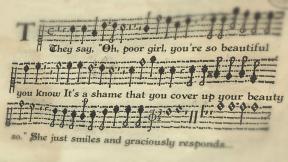
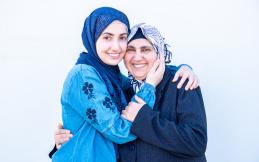

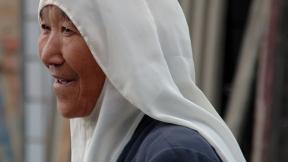
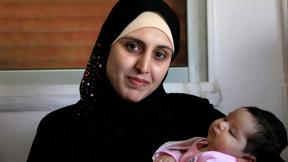


Comments
A wonderful person & a great teacher
I was a Nephrology fellow trained by this great person in 1990s. I just heard about her passing from one of her other fellows. She was a great person who inspired me a lot during my fellowship. Always in a scarf, well dressed, & concerned about humanity. May ALLAH (SWT) shower HIS blessings upon her, elevate her status, & keep her protected by HIS mercy.
Location
What a wonderful person 💖
May we all attain such love for our fellow ppl and such love for our Creator and His Messenger ❤️
Location
Sister Dr Zennat.
اللهم اغفر لها وارحمها
Location
Add new comment